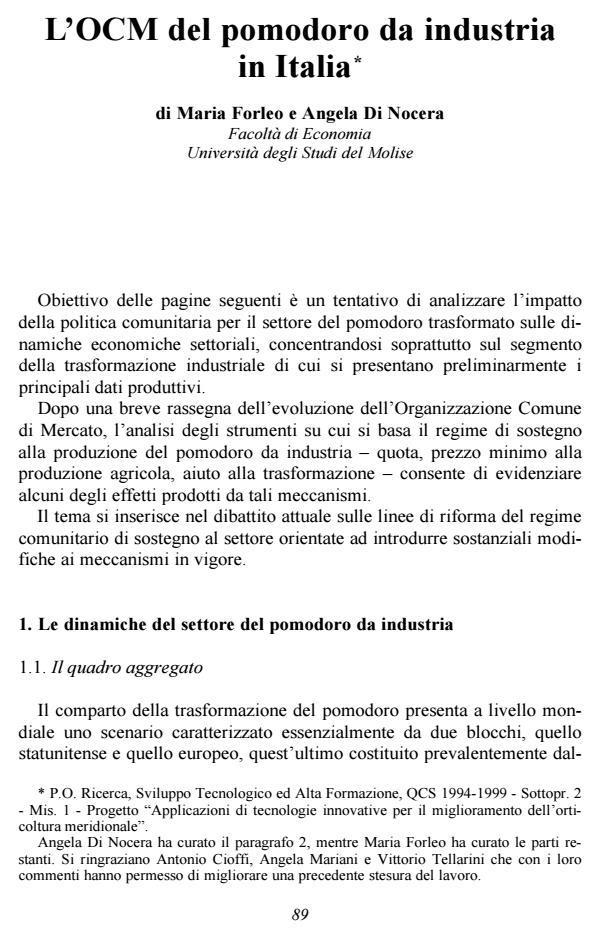L'OCM del pomodoro da industria in Italia
Journal title ECONOMIA AGRO-ALIMENTARE
Author/s Maria Forleo, Angela Di Nocera
Publishing Year 2002 Issue 2001/1
Language Italian Pages 28 P. File size 77 KB
DOI
DOI is like a bar code for intellectual property: to have more infomation
click here
Below, you can see the article first page
If you want to buy this article in PDF format, you can do it, following the instructions to buy download credits

FrancoAngeli is member of Publishers International Linking Association, Inc (PILA), a not-for-profit association which run the CrossRef service enabling links to and from online scholarly content.
The Common Market Organization (CMO) for processed tomatoes, set firstly in 1978, is currently based on Regulation No 2201/96 which provides a system of production aid granted whithin a limit of quota to processors who have paid producers a price for raw materials not less than a fixed minimum annually set by the Commission. Production exceeding quota receives aid if is paied at the minimum price, otherwise does not receive aid but it is not penalised. In this article we firstly describe in detail the actual scheme of CMO, then we try to evaluate his application in Italy, the first producer of processed tomatoes in EU and the second in the world, after US. Goals of CMO don’t seem fully realised. Minimum price produce market distorsions. Quota mechanisms are set in a way which force both processors and producers to contract annually quantities exceeding limits of the proceeding years just to avoid the reduction of future quotas via the allowance coefficient but not following the market demand. For the same reason, contracts concluded between POs and producers fail to settle production and to produce raw material according to the processors demand. External pressures to the UE (namely from the WTO) and the internal budget will lead to a CMO reform, claimed also by processors and producers even if with different position. Recently the European Commission presented a proposal to amend the Common Market Organization which introduce relevent changes into the actual scheme. This is because of some shortcomings that should addressed urgently, first of all aimed to rationalise and simplify the arrangements scheme and to adapt the production thresholds to the market demand.
Maria Forleo, Angela Di Nocera, L'OCM del pomodoro da industria in Italia in "ECONOMIA AGRO-ALIMENTARE" 1/2001, pp , DOI: